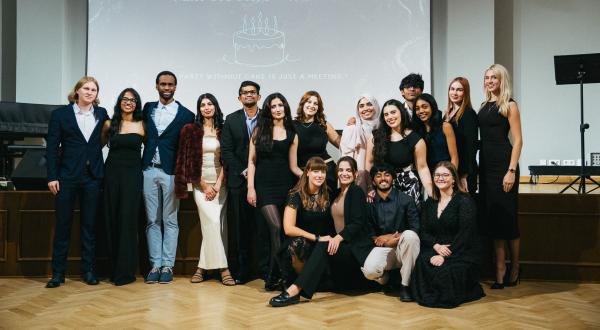30 years of Erasmus - time to celebrate!
To mark the 30th anniversary of the Erasmus mobility programme, the European Association of Erasmus Coordinators (EAEC) held a congress in Maribor, Slovenia to look back at the development path taken by the mobility programme since its establishment in 1987 and together with EC representatives and Erasmus coordinators from European universities, map out the future of the programme after expiry of the current Erasmus planning period in 2020.
As recognised by the Deputy Head of the Higher Education Unit at the European Commission Vanessa Debiais-Sainton, during the period of 30 years around 9 million people have gone on Erasmus – almost half of them have been from institutions of higher education and have participated in diverse forms of mobility and placement activities. As for today 33 European countries have joined Erasmus.
For the remaining three years of the current Erasmus+ planning period the European Commission has put forward several priority directions: integration of people with disabilities, digitalisation, OLS improvement, quality assessment of student and staff mobility and identification of priority directions for strategic partnership activities.
At the congress a presentation on the impact of geo-political turbulences on Erasmus mobility in the context of security was given by the Director of the RSU International Department Baiba Pētersone. Apart from the traditional obstacles hindering participation in Erasmus mobility – a lack of funding, differences in education systems, insufficient information, family matters and personal choices, she noted that the emerging unrest and recent terrorist attacks in Europe have a role to play when making the decision on involvement in Erasmus mobility activities. B. Petersone highlighted the necessity of sending and host institutions to adapt to changes: offer special adaptation programmes for incoming students, expand the number of partner universities in places qualifying as safe, ensure a regular safety discourse with partner universities and encourage the exchange of experience among Erasmus representatives and persons going on Erasmus for the first time.
To streamline Erasmus activities in the upcoming planning period after 2020 the European Commission has launched consultations with various stakeholders. V. Debiais-Sainton is convinced that digitalisation of Erasmus will result in the mobility programme becoming more flexible, accessible, qualitative and recognisable and become a strong support for the improvement of students' foreign language skills.
RSU signed the Erasmus Charter in 2003. Within the framework of Erasmus, RSU cooperates with over 150 universities and implements diverse mobility programmes for students, academic staff and administrative personnel.
Related news
 13th anniversary of RSU’s International Student Association celebrates accomplishments and communityFor Students, News
13th anniversary of RSU’s International Student Association celebrates accomplishments and communityFor Students, News


